Organic Makeup for Acne-Prone Skin: What You Need to Know
flareAI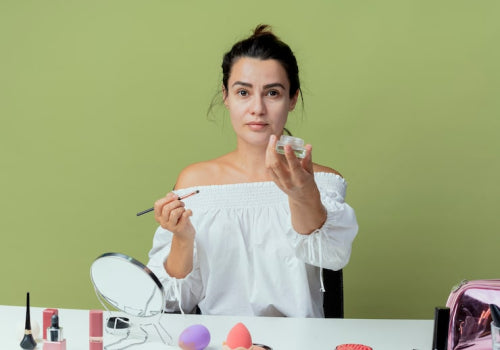
Quick Listen:
Picture this: You peer into the mirror each morning, bracing for the unwelcome surprise of inflamed, stubborn breakouts that no amount of concealer seems to tame. For millions grappling with acne-prone skin, makeup has long been a double-edged sword offering a veil of confidence while potentially fueling the very chaos it aims to hide. But in the evolving landscape of beauty, organic formulations are emerging as a formidable ally, delivering flawless coverage without compromising your skin's fragile equilibrium. These aren't fleeting fads; they're science-backed solutions rooted in nature's arsenal, designed to nourish as they adorn.
At the heart of this shift lies a profound understanding: True beauty thrives when skin health takes precedence. Enter brands like Liht Organics, pioneers in high-performance makeup boasting over 80% clean, organic ingredients formulas so pure they're essentially safe to ingest, while actively supporting skin repair. Crafted in the USA and Singapore, Liht's offerings transcend mere cosmetics; they represent a commitment to transparency and efficacy, particularly for those in humid climates like the UAE or Malaysia, where sweat and oil can exacerbate flare-ups. This guide unpacks the why, how, and what-next of organic makeup, arming you with the knowledge to revolutionize your routine.
Many women feel trapped by makeup that hides flaws but risks irritation and hidden toxins. This daily choice weighs heavily, dimming confidence over time. Liht Organics invites you to embrace beauty differently. With up to 90% USDA-certified organic ingredients, our vegan, cruelty-free products deliver vibrant color and gentle care, letting you glow with confidence, knowing your skin is nurtured, not compromised. Shop Now!
Emerging Trends in Organic Makeup for Acne-Prone Skin
The cosmetics world is undergoing a seismic transformation, one where discerning consumers demand more than superficial allure they seek substantiation. Labels are scrutinized under a microscope, with "organic" and "clean" emerging as badges of trust amid a sea of synthetic alternatives. This isn't mere whimsy; it's a response to mounting evidence that conventional products, laden with pore-clogging agents, often aggravate acne rather than alleviate it.
Consider the robust trajectory of the anti-acne cosmetics sector, pegged at USD 5.2 billion in 2024 and forecasted to surge to USD 8.9 billion by 2030, propelled by a 9.4% compound annual growth rate from 2025 onward. Asia Pacific commands the lion's share, capturing 41.1% of revenues last year, a testament to rising incomes and a cultural pivot toward holistic wellness in markets like Singapore, India, and Saudi Arabia. Here, K-beauty rituals and Ayurvedic influences converge, amplifying calls for gentle, non-comedogenic options that harmonize with diverse skin tones and environmental stressors.
Zooming in, the organic subset is outpacing the industry average, as awareness grows around the pitfalls of parabens and sulfates ingredients notorious for disrupting hormonal balance and inviting bacterial overgrowth. In India, for instance, a surge in plant-derived serums and powders tailored for oily, breakout-prone complexions reflects this ethos, minimizing flare-up risks through anti-inflammatory botanicals. Brands are innovating relentlessly, infusing long-wear mattes with probiotics for microbial equilibrium or CBD extracts to quell redness. Venture onto TikTok, and you'll encounter Singaporean creators extolling halal-certified, fragrance-free concealers that glide over blemishes without residue real-world endorsements that underscore how these trends are reshaping daily rituals across the US, Australia, and beyond.
Yet this momentum extends further. The broader cosmetics arena, valued at over USD 800 billion by 2023's close with a steady 7% annual clip, signals a global appetite for authenticity. In the UAE and Malaysia, e-commerce giants like Namshi and Faces are stocking these gems, bridging accessibility gaps and fueling a dialogue on sustainable beauty that resonates from Sydney's beaches to Riyadh's souks.
Why Organic Makeup Is Ideal for Acne-Prone Skin
Organic makeup's supremacy for acne-prone skin boils down to a singular principle: Prevention through purity. Conventional counterparts often harbor hidden adversaries silicones that suffocate pores, preservatives that inflame, and synthetic dyes that sensitize. In contrast, certified organics draw from verifiable, earth-sourced elements, rigorously tested to fortify rather than fracture your skin's natural defenses.
For the acne-afflicted, this translates to tangible relief. Harsh actives erode the lipid barrier, spurring compensatory oil production and bacterial proliferation; organics, however, replenish with humectants and antioxidants that stabilize sebum without excess. Aloe vera, for one, delivers instant hydration sans greasiness, its polysaccharides forming a protective film that soothes post-inflammatory hyperpigmentation. Chamomile steps in as an anti-inflammatory powerhouse, mitigating redness via apigenin compounds that inhibit histamine release. Jojoba oil, chemically akin to human sebum, regulates without overwhelming, ideal for the treacherous T-zone that undermines even the most meticulous applications.
Liht Organics masterfully integrates these into their portfolio, ensuring each product not only camouflages but cultivates resilience think foundations that evolve from coverage to care over hours. But vigilance is key: Even "natural" claims warrant scrutiny. A recent analysis revealed that more than 94% of products touted as all-natural or suitable for sensitive skin harbor known allergens triggering contact dermatitis manifesting as persistent itch, rash, and scaling that lingers weeks post-exposure. This underscores the peril of unregulated labels; true organics, bearing the USDA seal (demanding 95% organic content), sidestep such deceptions by mandating simplicity and transparency.
Experts concur: Prioritize fragrance-free formulations with concise ingredient decks to evade common culprits like phthalates and PFAS, endocrine disruptors linked to broader health woes. For the perennial acne battler, this yields enduring wear minus comedogenic consequences empowering you to layer boldly, knowing your canvas is being cherished beneath the facade.
Real-World Examples: Success Stories and Case Studies
The proof, as they say, resides in the application and social feeds brim with it. Across Instagram and TikTok, users in target hotspots are chronicling triumphs that affirm organic makeup's prowess. In the US, where medspas dominate 64.4% of the anti-acne arena, influencers swap synthetic bases for mineral-infused organics, unveiling evened tones free of heat-trapping buildup. A standout New York reel captures a creator's unfiltered evolution: Cystic nodules subdued overnight via a balm blending rescue botanicals, no digital sleight required.
Singapore's scene pulses with halal-aligned innovation. Local TikTokers spotlight fragrance-free lines from indie labels, merging seamlessly with organic concealers for luminous, lesion-less results. Viewers echo reduced post-application pustules, crediting the pivot from chemical-laden kits to nature-nurtured palettes. Echoes resound in the UAE, where Gold Apple and Namshi curators showcase hauls: Jojoba-enriched blushes that withstand arid blasts, purging nil.
Nor is this confined to metros. Malaysian feeds teem with before-and-afters chamomile-dusted powders fading flares amid tropical humidity. Australian adventurers hail reef-safe tints that shield sans sensitivity, while Indian creators fuse heritage herbs into modern masks, tackling monsoon-induced mishaps. Even Saudi influencers, via The Green Collective proxies, celebrate clean swaps that honor cultural modesty and skin sanctity alike. These narratives aren't anomalies; they herald a paradigm where organic adoption redefines accessibility, from urban e-tailers to grassroots glow-ups, proving efficacy transcends borders.
Challenges and Limitations of Organic Makeup for Acne-Prone Skin
No revolution arrives unchallenged, and organic makeup's ascent is no exception. Foremost among hurdles is comprehension or the lack thereof. Consumers often stare at botanical rosters like cryptic scrolls: "Why tea tree for its antimicrobial might? How does green tea sequester oils?" This informational void fosters doubt, eroding confidence in efficacy and stalling trials. Compounding this, trust erosion looms large; unregulated "clean" monikers, as evidenced by that 94% allergen infiltration, breed skepticism toward unvetted vows.
Economics bite too: Premium sourcing inflates costs, clashing with fast-beauty imperatives in budget-strapped spheres. Availability falters beyond beacons like Singapore's Green Collective or Dubai's Faces, leaving rural Australian or Indian outposts underserved. Lingering lore that organics flake or fade prematurely persists, a relic of nascent tech now eclipsed by fortified pigments.
These barriers, though formidable, yield to strategy. Brands like Liht Organics counter with lucid breakdowns, TikTok tutorials demystifying actives, and loyalty loops that affirm value. By confronting obscurity head-on illuminating why ingestible purity trumps transient trends adoption accelerates, transmuting obstacles into on-ramps for enlightened choices.
Opportunities and Business Impacts
The vista for organic makeup gleams with untapped vigor, especially in Liht's core terrains: US, UAE, Singapore, Malaysia, Australia, Saudi Arabia, and India. Asia Pacific anchors the anti-acne market, commanding over two-fifths of global demand. Valued in the billions and set for rapid expansion, the region's growth is fueled by urban pollution, shifting lifestyles, and the surge of e-commerce accessibility. While women remain the core drivers, men's participation is climbing fast, with fading stigma accelerating proactive skincare adoption.
In India and Malaysia, wellness-aligned coffers embrace eco-formulas; Australia's sun-savvy set and Saudi's premium pursuits propel Namshi carts. Liht Organics excels, their 80%-plus organic mantle a clarion amid din US/Singapore genesis underscoring quality. Demystify via education ingredient spotlights, objection-busting FAQs and loyalty burgeons. This niche, ripe for upheaval, rewards transparency: Hydroquinone's perils (carcinogenic risks, depigmentation) spotlight natural proxies like arbutin, safer for pigmentation woes in acne contexts.
Globally, organic's ascent fueled by aversion to synthetics promises seismic shifts, with clean segments accelerating amid rising middle-class spends and digital dialogues. For acne-attuned marques, this epoch demands audacious advocacy, forging not sales, but sagas of sustained radiance.
Expert Insights and Future Outlook
Distilling expertise: Commence with patch trials, apply sparingly, and champion barrier bolsters like those emollient elixirs. For acne denizens, brevity reigns certified cleans amplify impact. The clean cascade mounts, set to submerge synthetics as UAE and US denizens crave profundity over polish. Incumbents will adapt; vanguards like Liht, with ingestible ingenuity, seize sovereignty.
Ultimately, organic makeup forges alliance with epidermis a covenant for audacious, unmarred days. Eschew concealment's cost; embrace care's conquest.
Frequently Asked Questions
Why is organic makeup better for acne-prone skin than conventional makeup?
Organic makeup is ideal for acne-prone skin because it avoids pore-clogging ingredients like silicones, synthetic preservatives, and harsh chemicals that can worsen breakouts. Instead, organic formulations use earth-sourced ingredients like aloe vera, chamomile, and jojoba oil that nourish and stabilize the skin's natural barrier without causing excess oil production or bacterial proliferation. Look for USDA-certified organic products with at least 95% organic content to ensure you're getting genuine benefits.
What ingredients should I look for in organic makeup for acne-prone skin?
The best organic makeup ingredients for acne-prone skin include aloe vera for hydration without greasiness, chamomile for its anti-inflammatory properties that reduce redness, and jojoba oil which naturally regulates sebum production. Tea tree oil provides antimicrobial benefits, while green tea helps control excess oils. Always choose fragrance-free formulations with simple ingredient lists to avoid common allergens and endocrine disruptors like phthalates and PFAS.
How fast is the organic anti-acne makeup market growing?
The anti-acne cosmetics market is experiencing rapid growth, valued at USD 5.2 billion in 2024 and projected to reach USD 8.9 billion by 2030 with a 9.4% compound annual growth rate. The organic subset is outpacing the industry average, particularly in the Asia Pacific region which commands 41.1% of market revenues. This growth is driven by increasing consumer awareness about the harmful effects of synthetic ingredients and a cultural shift toward holistic wellness and clean beauty products.
Disclaimer: The above helpful resources content contains personal opinions and experiences. The information provided is for general knowledge and does not constitute professional advice.
You may also be interested in: [FEATURE] THE FEMALE CULTURE – I TRIED LIHT ORGANICS
Many women feel trapped by makeup that hides flaws but risks irritation and hidden toxins. This daily choice weighs heavily, dimming confidence over time. Liht Organics invites you to embrace beauty differently. With up to 90% USDA-certified organic ingredients, our vegan, cruelty-free products deliver vibrant color and gentle care, letting you glow with confidence, knowing your skin is nurtured, not compromised. Shop Now!
Powered by flareAI.co
شاركي
You May Also Like
-

Discovering Self-Love Through Clean Beauty: A Guide to Nurturing Your Inner and Outer Self
In the journey of self-love, every action, thought, and choice we make towards ourselves can be a powerful affirmatio...
-

The Science Behind Organic Makeup and Pregnancy: A Gentle Choice for Moms-to-Be
wp:paragraph Pregnancy is a wonderful and exciting journey that comes with added responsibilities of ensuring the ...
-
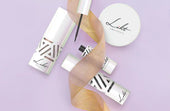
Liht Organics Black Friday: Enhance Your Beauty Routine with Vegan, Organic, and Natural Essentials!
As the holiday season approaches, there’s a sparkle in the air, and we at Liht Organics are thrilled to add a touch o...
-

Organic Makeup That Heals As It Conceals
Liht Organics Empowers Women With Only The Best For Their Beauty NeedsLiht Organics combines the best of both worlds:...
-
![[FEATURE] Liht Organics to debut at TFWA Asia Pacific show](//lihtorganics.com/cdn/shop/articles/1_1.png?v=1759328400&width=170)
[FEATURE] Liht Organics to debut at TFWA Asia Pacific show
‘Organic makeup that’s safe enough to eat’ — Liht Organics to debut at TFWA Asia Pacific show by Hannah Tan | 24 Apri...
-
![[FEATURE] The Singapore-based organic makeup brand is a first-time exhibitor at this year’s TFWA Asia Pacific Exhibition in Singapore in May 2025](//lihtorganics.com/cdn/shop/articles/2_1.png?v=1759328386&width=170)
[FEATURE] The Singapore-based organic makeup brand is a first-time exhibitor at this year’s TFWA Asia Pacific Exhibition in Singapore in May 2025
TFWA Asia Pacific preview: Liht Organics targets expansion in travel retail By DFNI Staff Writer The Singapore-bas...
-
![[FEATURE] Travel Retail Awards 2025 finalists - Best Make-up Product Color-Intense Liquid Lipstick – Liht Organics](//lihtorganics.com/cdn/shop/articles/4_e2f54f0f-fcd1-46e7-9990-fc9d29e35131.png?v=1759328382&width=170)
[FEATURE] Travel Retail Awards 2025 finalists - Best Make-up Product Color-Intense Liquid Lipstick – Liht Organics
Revealed: Travel Retail Awards 2025 finalists By Trbusiness Editor | Wednesday, 23 July 2025 15:21 TRBusiness is th...
-
![[FEATURE] Liht Organics targets expansion in travel retail](//lihtorganics.com/cdn/shop/articles/3_1.png?v=1759328346&width=170)
[FEATURE] Liht Organics targets expansion in travel retail
Organic makeup that’s safe enough to eat: Liht Organics targets expansion in travel retail By Laura Shirk Liht Organ...
-

[FEATURE] Gulf News: TikTok’s strawberry girl makeup trend: How to achieve that rosy glow inspired by Hailey Bieber
Berry, berry, strawberry, love strawberry, like BTS’s J-Hope, the band’s strawberry enthusiast once said. If only we ...
-

[FEATURE] Gulf Business Magazine : Liht-ing it up
Our founder, Nerissa Low was interviewed by Gulf Business, where she discussed her experience launching Liht, an orga...
-

[FEATURE] Daily Vanity: 11 local beauty brands owned by women – you’d be surprised how many of them started in their kitchens!
When we give a shout-out to homegrown beauty businesses, we aren’t just doing it for the sake of supporting local. Th...
-

[FEATURE] Entrepreneur ME : UAE-Based Liht Organics' Nerissa Low On Crafting An Organic Makeup Brand For The Skin-Conscious Consumer
As is the case with the origin stories of so many startups out there, Liht Organics came into being after its founder...
-

Mother, Baby & Child Editor’s Pick: Liht Organics Lights the Way
Excited to be the Mother, Baby & Child’s ‘Editors pick’ for their choice of Beauty brand.The article outlined the...
-
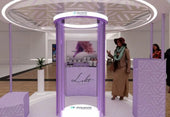
[FEATURE] EmiratesWoman - 8 Fabulous things to do in Dubai this weekend
by SARAH JOSEPHJANUARY 20, 2023Try the UAE’s first virtual reality makeup podium The popular VR-backed makeup exper...
-

Nerissa Low of Liht Organics On The Self-Care Routines & Practices Of Busy Entrepreneurs and Business Leaders
By Maria Angelova, CEO of Rebellious Intl.Date: 4 January, 2023Nerissa Low of Liht Organics On The Self-Care Routines...
-

Liht Organics: Meet the beauty brand that has caught the eye of the Royal Family of Bahrain
By Crystal Lee Digital Editor28 May 2021The world of clean beauty is, ironically, rather murky.That’s because the ter...
-

The latest luxury makeup and skincare drops, including serums, concealers, moisturisers and more
Allisa Noraini21 May, 2021It’s fine to splurge in the name of beauty. This new range of makeup and skincare drops are...
-

These SG Beauty Bosses Are Conquering The World Despite The Pandemic
First Singapore, then the US, China, Germany, Dubai, UK, South Korea, Malaysia, Hong Kong, Thailand, Australia… By...
-

Nerissa Low, Founder at Liht Organics
Written by Callum LaingPosted on December 26, 2020 10 min readNerissa Created Organic Makeup That Actually Improve...
-

Liht Organics – Makeup That Makes You
At Liht Organics, our mission is simple – to provide women (and men) with a safe experience when it comes to beauty s...
-

Why Should We Use Organic Makeup?
We cannot deny that cosmetics is one of our beauty essential item – it enhances our looks and conceals our flaws. Man...
-

Organic makeup and why your skin will love it: Liht Organics founder
By Jolene,July 27, 2020 |7 mins readOrganic make up in Singapore is a trend that is fast-catching on here as we becom...
-

[FEATURE] DC EDIT – Makeup & Confidence: Talking Self-love With Liht Organics’ Founder Nerissa Low
Makeup and confidence — the long, drawn-out fight that many of us have grappled with personally. I’m sure I’m not the...
-

[FEATURE] THE FEMALE CULTURE – I TRIED LIHT ORGANICS AND THIS IS HOW IT WENT
I’m a huge fan of makeup and I love testing out new products so I was pretty excited to get my hands on Liht Organics...
-

[FEATURE] SINGAPORE MOTHERHOOD – The Best Organic and Natural Skincare and Makeup for Pregnant and Breastfeeding Mums in Singapore
Pregnancy is a hormone-volatile period for women. One place where this makes itself seen and felt is on the skin. Som...
-

[FEATURE] AFTER CLINIC HOURS – 21 Back to Beauty Deals in Singapore (2020)
With spas and salons shuttered island wide for two months, I never thought I’d be this desperate for a good old’ Swed...
-

[FEATURE] KUL AL USRA MAGAZINE JUNE 2020
Choosing Pinks & Oranges this summer!Featured: Moisture Burst Lip Glaze in Pink Cupcake.
-
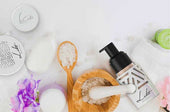
[FEATURE] Award-winning Organic Makeup Brand Liht Organics Gives Back to the Community & Environment During COVID-19
Singapore’s First Organic Makeup Brand with 100% Natural Makeup That Is Safe Enough to Eat Liht Organics promises org...
-

[FEATURE] COSMETICS DESIGN ASIA – COVID-19 ‘WAKE-UP CALL’: SINGAPORE’S LIHT ORGANICS SEES GLOBAL POTENTIAL AMID CLEAN BEAUTY CLAMOUR
Original article at: https://www.cosmeticsdesign-asia.com/Article/2020/06/26/Singapore-s-Liht-Organics-sees-globa...
-

[FEATURE] THE LIFESTYLE COLLECTIVE – BEAUTY SHOULD NEVER BE CRUEL
Date: June 24, 2020Author: Kristen Chen Liht (pronounced as light) Organics is a Singaporean organic makeup brand t...
-

[FEATURE] NÜYOU – 7 ONLINE PLATFORMS TO SHOP FOR CLEAN BEAUTY PRODUCTS
纯净美容(Clean Beauty)的美肤概念,再近几年来越来越受欢迎。随着消费者“爱自己”的美容意识逐步提升,对于用在脸上的所有物品、成分更为关注和讲究。以广义来讲,纯净美容主张使用“干净”成分和无毒配方,让肌肤的可能性损伤减到最小...
-

[FEATURE] COSMOPOLITAN MIDDLE EAST – 3 BENEFITS OF SWITCHING TO ORGANIC BEAUTY PRODUCTS THIS RAMADAN
By Cosmo – May 08, 2020Nerissa Low, founder of Liht Organics, shares the ultimate benefits of going organic this mont...
-

Nerissa Low of Liht Organics: “Seeing Light at the End of the Tunnel; 5 Reasons To Be Hopeful During this Corona Crisis”
Ely Weinschneider, Psy.D.May 8 · 9 min read …It shows us that everyone- whether we are rich or poor, regardless...
-

[FEATURE] AL MARA MAGAZINE APRIL 2020
-

[FEATURE] RetailME April 2020 – Liht Organics Stays Firm On Strengthening GCC Presence
-

[FEATURE] EMARAT AL YOUM NEWSPAPER – 27 MARCH 2020
English Translation:In spring and summer days, women love to have very light makeup in terms of color and texture, ...
-

[ARTICLE] WKND Magazine March 2020 – Know Your Organic Makeup
-

[FEATURE] AVIAMOST DUBAI – March/April 2020
English Translation:Lipstick with organic flowers. Thanks to the rich complex of natural ingredients, the lipstick...
-

[FEATURE] RUSSIAN EMIRATES (MAR/APR ISSUE)
Russian Emirates is a luxury lifestyle and fashion magazine covering information about the UAE, fashion, beauty, j...
-

[FEATURE] – KUL AL USRA MAGAZINE MARCH 2020
GET THE LOOK!
-

[FEATURE] IMAGES Retail ME – Liht Organics Announces GCC-Wide Expansion
Rupkatha Bhowmick Mar 10, 2020 The plan is to reach 75 Liht Organics retail touchpoints by June-July 2020 and touch...
-

[FEATURE] BABY & CHILD SPRING 2020 – NATURAL BEAUTIES
-

[FEATURE] AWQAT DUBAI – Liht Organics: The First Premium Organic Makeup Brand
ENGLISH TRANSLATION:Liht Organics – The First Premium Organic Makeup Brand Liht Organics, a premium organic beauty ...
-

[FEATURE] FRIDAY MAGAZINE – THE RETRO EYELINER LOOK
-

[FEATURE] MOTHER BABY & CHILD – VANITY ESSENTIALS – THE BEAUTY EDIT
-

[FEATURE] Masala! Magazine February/March 2020 Issue – Beauty Debut: Liht Organics
-

[Feature] – TimeOut Singapore – The Best Local Beauty and Skincare Brands In Singapore
For full article, click here.
-

[FEATURE] KUL AL USRA MAGAZINE – LIHT UP YOUR WORLD WITH LIHT ORGANICS
[ENGLISH TRANSLATION]Liht Up Your World With Liht OrganicsThe First Premium Organic Makeup Brand To Debut In The Mi...
-

[FEATURE] SINGAPORE TATLER – 9 Local Beauty Brands You Should Know Of
-

[FEATURE] nüyou August 2019 Issue – 15 Faces To Watch
-

[FEATURE] HONEYCOMBERS – Local Beauty Gurus: Singapore Beauty Brands You Need To Know About
-

[FEATURE] The Wellness Insider – Seeing The Liht With Founder Nerissa Low
-

[FEATURE] 联合早报 (LianHeZaoBao) – Women Entrepreneur Awards 2019 Coverage
-

[FEATURE] THE STRAITS TIMES Life – Clean beauty with a Singapore heart
-

Romantic Organic Makeup Looks for Valentine's Day: Tips, Tricks, and Product Picks
Valentine's Day is the perfect occasion to embrace the beauty of organic makeup. At Liht Organics, we believe in the ...
-
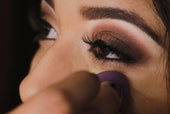
Enhance Your Eyes: A Guide to Eyeliner for Every Eye Shape with Liht Organics
Welcome to the Liht Organics blog, where we believe in celebrating the natural beauty of every eye shape. Today, we'r...
-
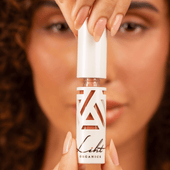
How to do makeup with only lipstick?
At Liht Organics, we believe in the power of clean beauty and the artistry of makeup. Makeup is more than just enhanc...
-

How to Clean Your Makeup Brushes in 6 Simple Steps
Cleaning your makeup brushes may seem like a tedious task, but it's an essential part of your beauty routine. Not onl...
-

Makeup Tips to Help You Look Your Most Flattering on Virtual Meetings!
After more than 2 years of work-from-home arrangement, and possibly hundreds of zoom calls and Google meet virtual me...
-
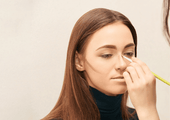
Learn How to Contour with This Simple Guide for Beginners
Want to take your makeup to the next level? Try contouring to achieve a more defined or sculpted look à la the Kardas...
-
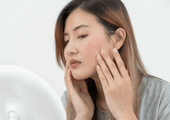
Essential and Easy Makeup Tips for Sensitive Skin
Living with sensitive skin conditions like eczema, psoriasis, and more is already not an easy feat. Throw in makeup t...
-

Raising Your Vibration: A Liht Organics Guide for Empowerment This International Women's Day
wp:paragraph As International Women's Day (IWD) approaches, it serves as a powerful reminder of the journey towards s...
-

The Beauty of Going Bare: Why Sleeping with Makeup is a No-No
Have you ever had one of those nights where you're too tired to clean off your makeup? You might believe, "Skipping...
-

Breast Cancer Awareness: Empower Your Beauty with Liht Organics Makeup
During October, we observe Breast Cancer Awareness Month as a way to unite and bring attention to breast cancer whil...
-

The Hidden Dangers of Carmine in Makeup Colorants: Embracing Healthier and Vegan Options
Makeup has become an integral part of our daily routines, allowing us to express our unique beauty. However, as we pr...
-

How can I ensure that my makeup products are organic and won't harm my skin?
When it comes to makeup, it’s important to be mindful of what you’re putting on your skin. With so many products on t...
-
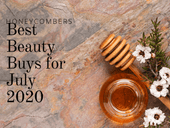
[FEATURE] HONEYCOMBERS – BEST BEAUTY BUYS IN JULY
by Nicole NithiyahWhat’s hot in our beauty hit list: Honest thoughts and top beauty stories we’re swooning over. As w...
-

Liht Organics Introduces Exclusive Gift Sets: Enhance Your Beauty This Festive Season!
As the holiday season approaches and the year draws to a close, Liht Organics is thrilled to present two enchanting g...
-

Get Spooktacular with the Best Halloween Makeup Ideas using Liht Organics' All-Natural, Vegan, and Cruelty-Free Cosmetics!
With Halloween just around the corner, it’s time to let your creativity shine and transform yourself into a spooky,...
-

Celebrating World Animal Day with Liht Organics: Embracing Natural Cruelty-Free Makeup
wp:paragraph As we observe World Animal Day, the team at Liht Organics takes great pride in honoring our pledge to...
-

Reasons Why You Should Choose Cruelty-Free Cosmetics Instead!
With increasing exposés unveiling the ugly truth behind animal testing that goes on in the beauty industry, it is lit...
-

Celebrate Singles Day with Makeup That Empowers – 22% Off at LIHT Organics!
This Singles Day, treat yourself to beauty that goes beyond skin-deep. At LIHT Organics, we believe makeup is about s...
-

Preparing for the Cozy Beauty of Autumn: A Preview of Your Fall Look
As we bid farewell to the warm, sun-kissed days of summer, it’s never too early to start dreaming about the enchantin...

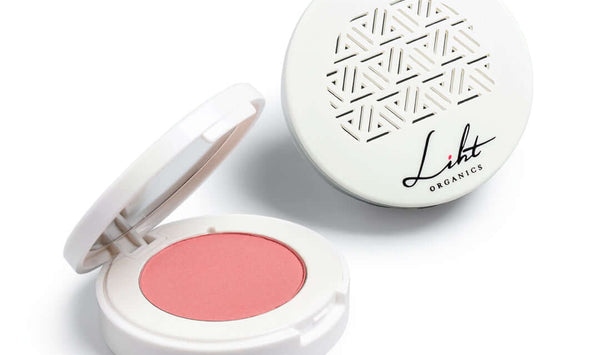
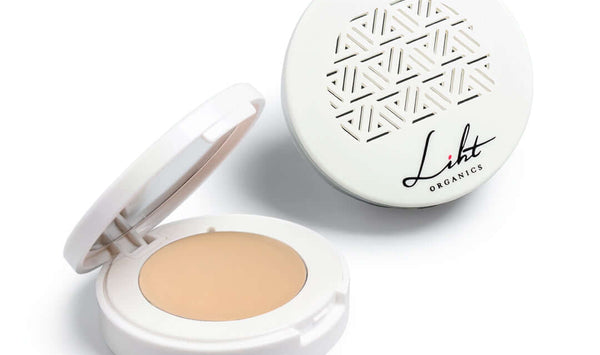
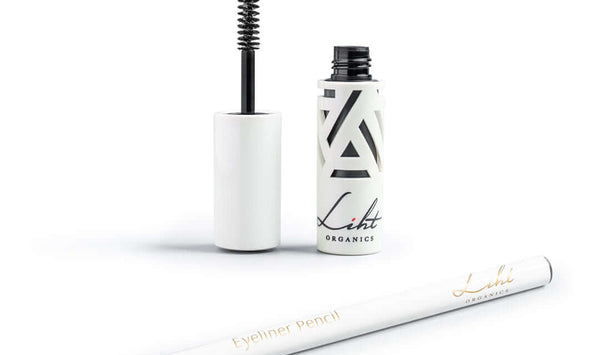
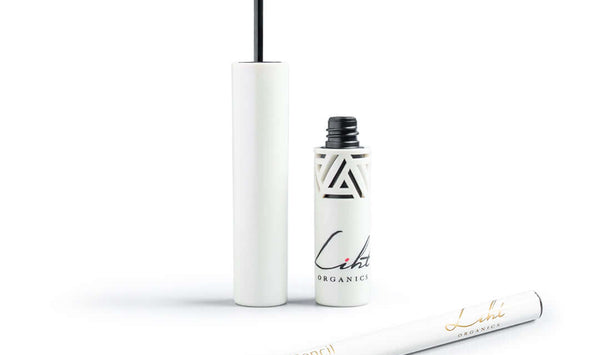
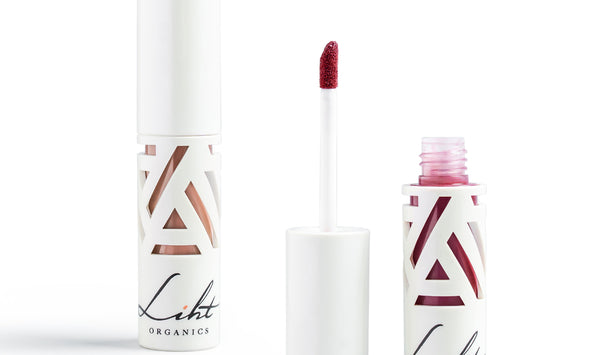
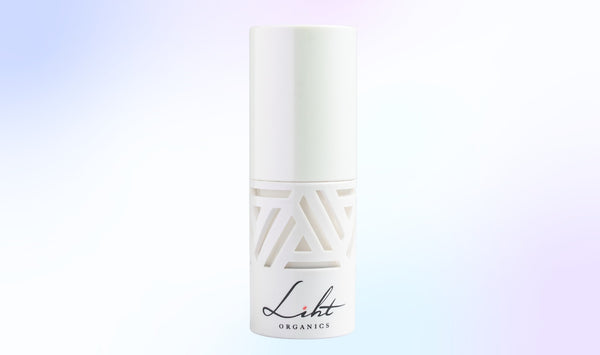

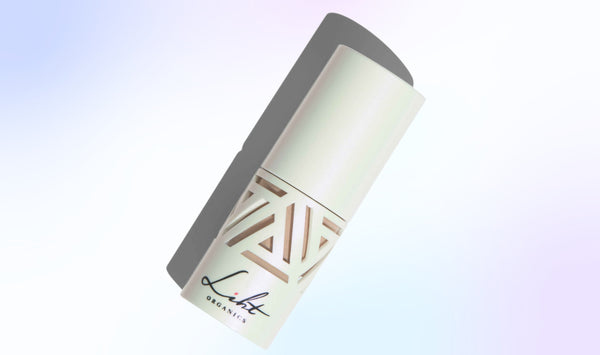
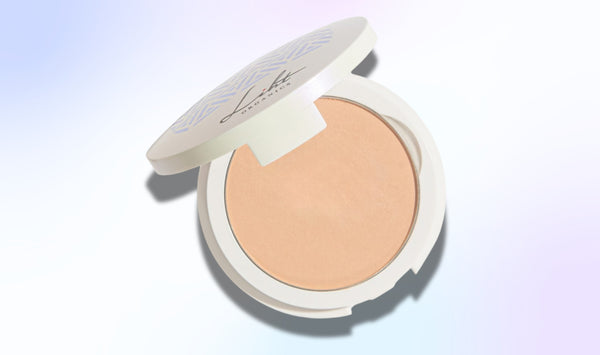
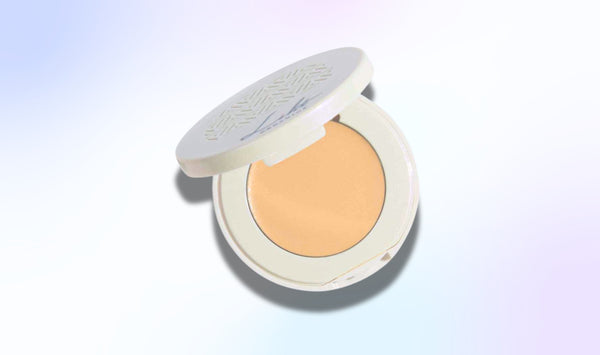
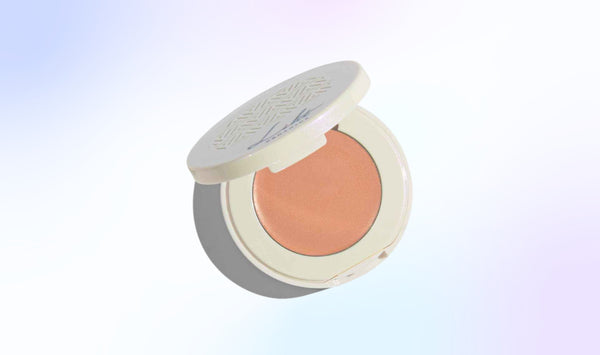
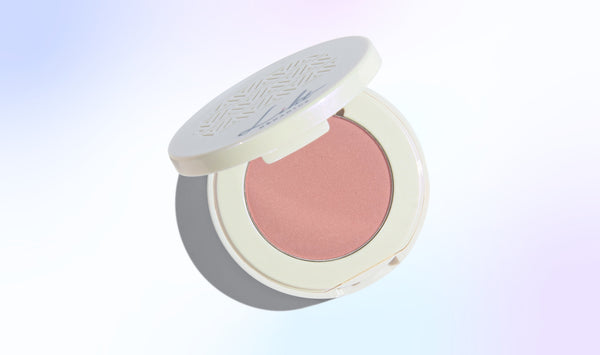
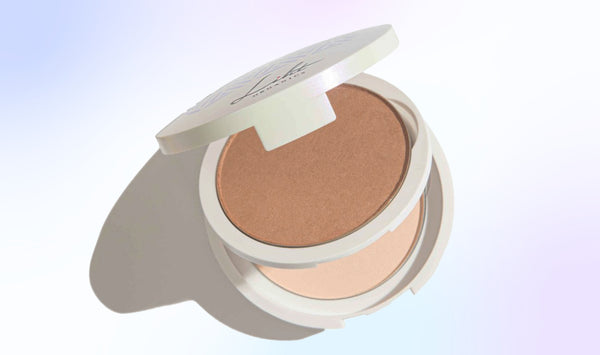
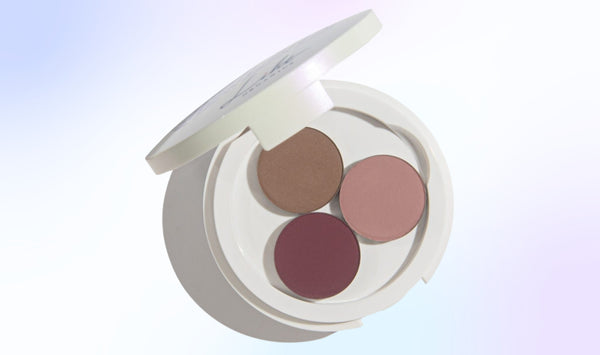
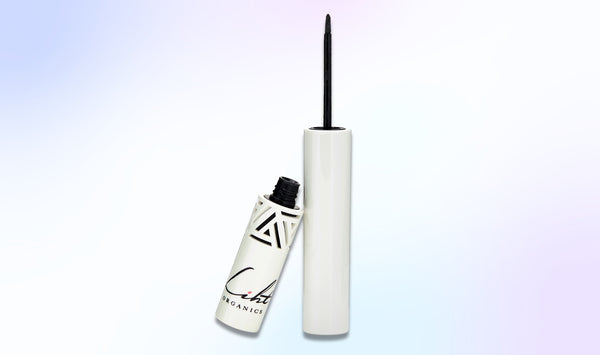
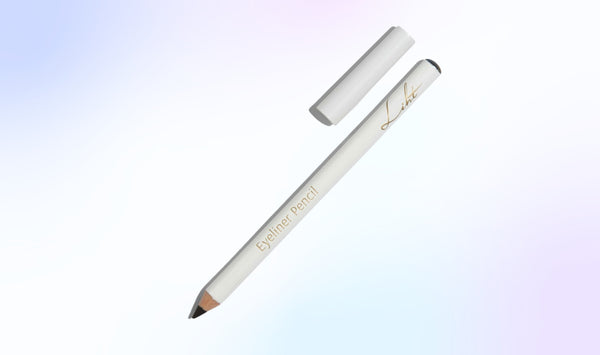
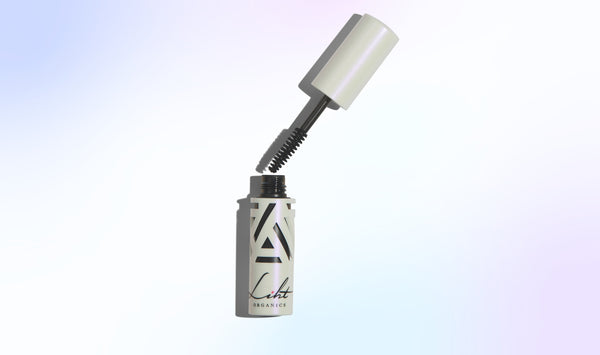
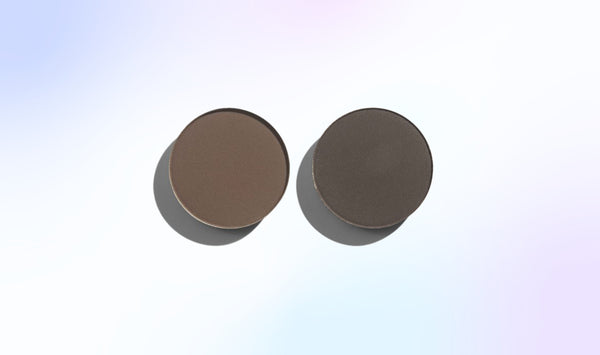
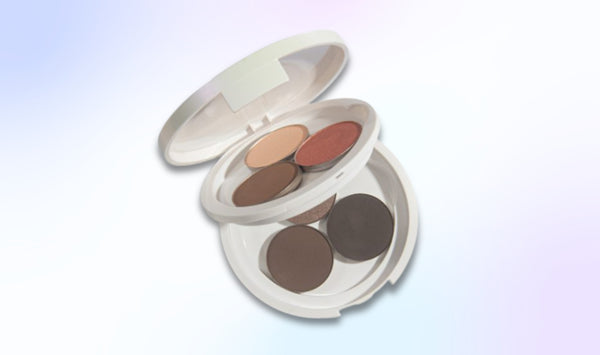
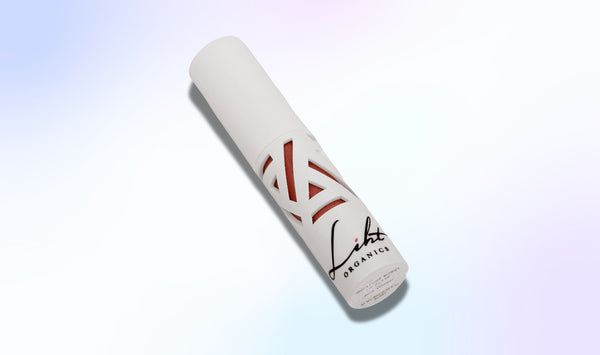
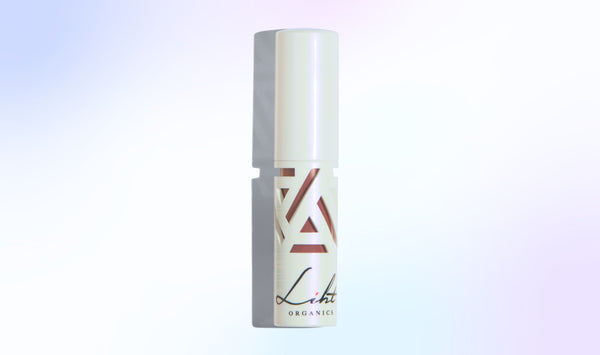
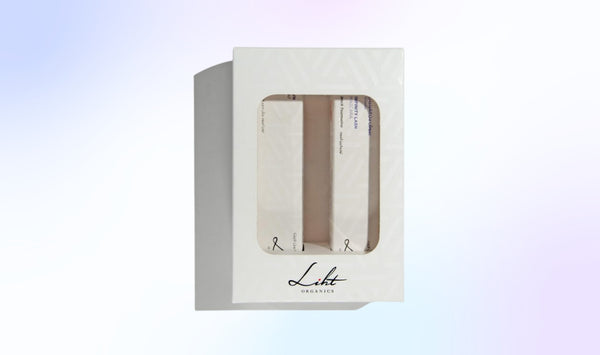
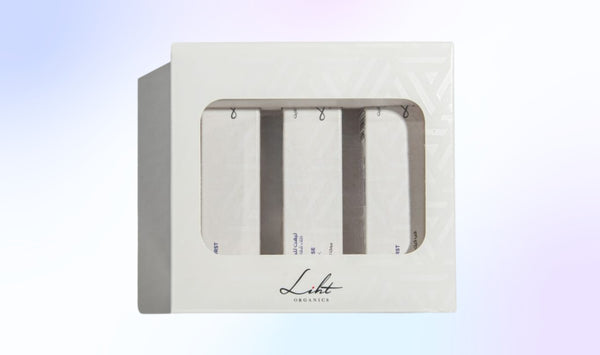


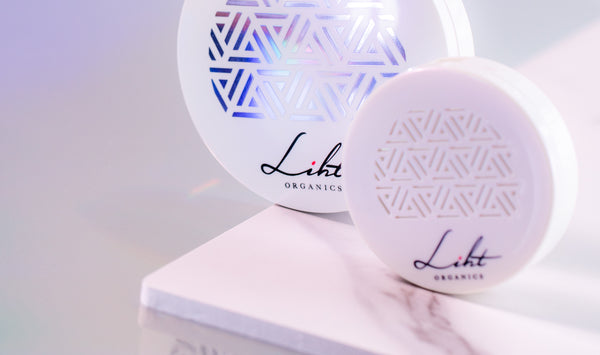
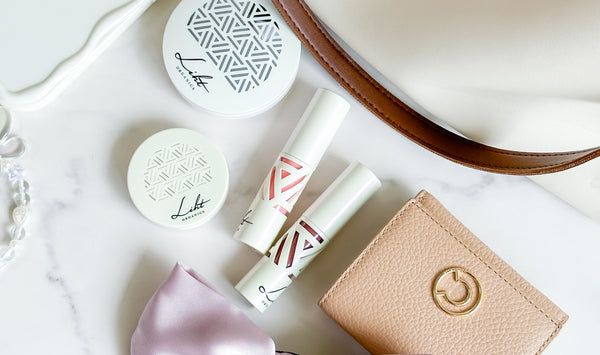
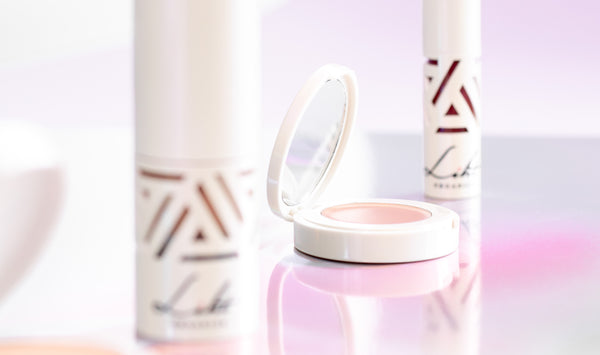




![[FEATURE] Liht Organics to debut at TFWA Asia Pacific show](http://lihtorganics.com/cdn/shop/articles/1_1.png?v=1759328400&width=170)
![[FEATURE] The Singapore-based organic makeup brand is a first-time exhibitor at this year’s TFWA Asia Pacific Exhibition in Singapore in May 2025](http://lihtorganics.com/cdn/shop/articles/2_1.png?v=1759328386&width=170)
![[FEATURE] Travel Retail Awards 2025 finalists - Best Make-up Product Color-Intense Liquid Lipstick – Liht Organics](http://lihtorganics.com/cdn/shop/articles/4_e2f54f0f-fcd1-46e7-9990-fc9d29e35131.png?v=1759328382&width=170)
![[FEATURE] Liht Organics targets expansion in travel retail](http://lihtorganics.com/cdn/shop/articles/3_1.png?v=1759328346&width=170)
































































